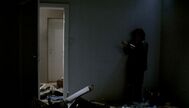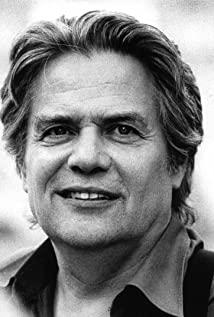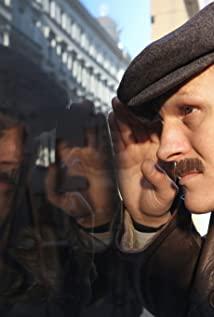The biggest feeling after watching it is similar to the line in "Dead Poets Society" - "Most people live in peaceful despair" (later verified to be from Thoreau), so I feel that this film expresses "peaceful despair" of the most vivid.
Modern society intends to forge most of the independent people into cold machines. At the same time as large-scale industrialization and mechanization, everything is moving closer to institutionalization, especially in the urban population. Under this background, people's lives have become mechanized, fixed, and calm. The advantage is that survival becomes simpler, and material conditions are sufficient and easy to obtain. Social life with passion is like a calm sea, but there are undercurrents inside, so there is despair in the calm, and people with restless minds and souls will never allow life to become boring.
Either obedience or resistance, obedience is patience, pretending to be nothing and continuing to repeat the monotonous life day after day, there are many forms of resistance, but the director chose the most extreme and explosive way to show it to the audience - destruction.
Freud divided human instincts into life instincts and death instincts. Under normal circumstances, people should give full play to their life instincts and actively survive for no reason like most living organisms, but it does not mean that there is only one kind of life. This film shows another kind of living method - "death instinct". Life and death are dialectically unified, and death is predestined at birth. Therefore, there is a thirst for death in everyone's instinct. This thirst points to oneself, that is, the desire for self-destruction. Desires - the family's choices make the most of it.
In fact, this way of destroying the world and destroying the earth has also fantasized in my childhood (maybe most people too) - when I was wronged, lost, depressed, and angry, I used to fantasize about the dying instinct to the fullest - destroying the sky Destroy the earth and the air, and finally destroy it together with the whole world. But this kind of counterintuitive way can only be a flash of pleasure in the mind, and very few people actually put it into action, so it can only be suppressed in the depths of the subconscious. From this level, I would like to thank the director for realizing this fantasy and satisfying the expression of this desire for destruction. After all, the pleasure of destruction and destruction is also an extreme experience - destroying everything beautiful (clothing, furniture, decoration, fish tank, life) ), especially the part about "rushing for money", it made the social animals who worked hard for money directly addicted.
Finally, I would like to talk about the understanding of the title "The Seventh Continent". I think all three explanations are possible. One is understood as "Australia", which represents the ideal yearning of the protagonists; the second is "Antarctica", which represents the cold and cruel reality; the third is "the continent that does not exist", which means the ideal situation that can never be reached.
Finally, I want to say that there are many ways to fight against mediocrity, and you don’t have to choose this most extreme way of bursting, such as holidays (choose some days as different days to fight against mediocrity), relocation and travel (through Change the living environment to resist), adjust the activities, etc. can achieve the purpose of improving the mood, people have to be positive. ?
View more about The Seventh Continent reviews










